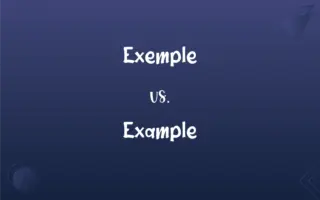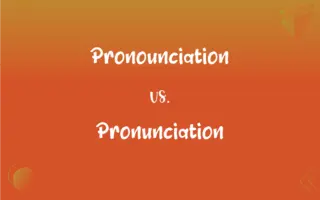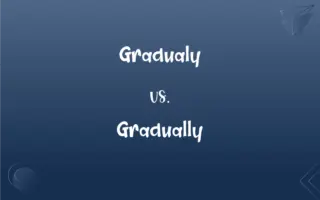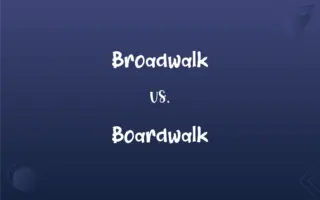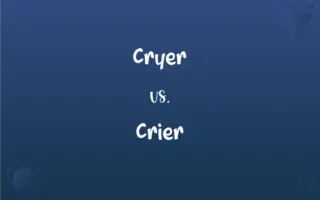Digged vs. Dug: Mastering the Correct Spelling
Edited by Aimie Carlson || By Janet White || Updated on March 8, 2024
Digged is an incorrect spelling; the correct spelling is dug. Dug refers to past tense of dig, meaning to break up and move soil.
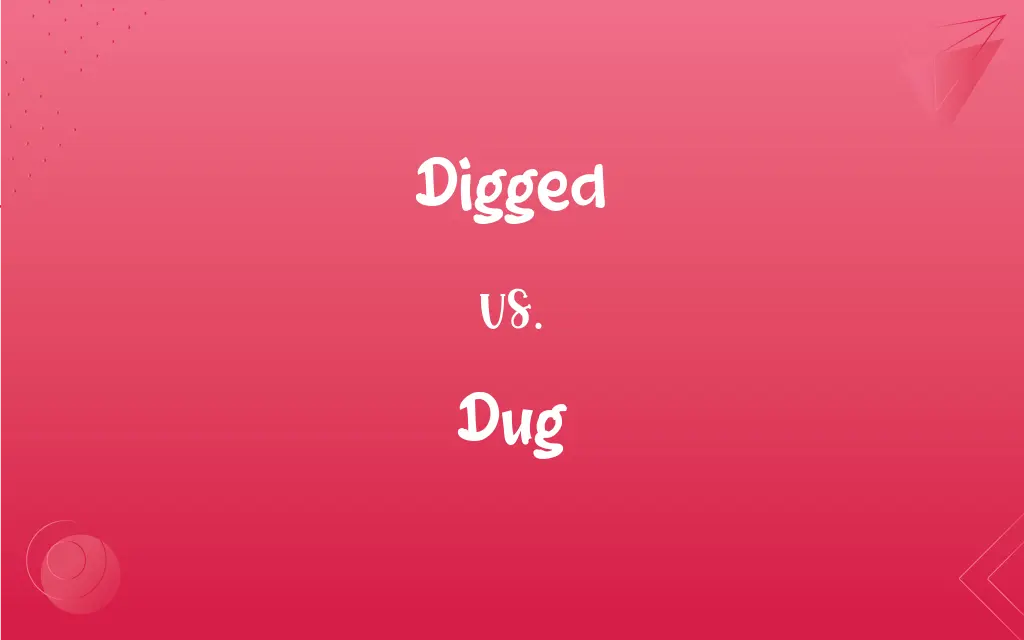
Which is correct: Digged or Dug
How to spell Dug?

Digged is Incorrect

Dug is Correct
ADVERTISEMENT
Key Differences
Visualize transforming 'dig' into 'dug' when the action is in the past.
Remember the pattern in similar verbs, like 'run' becomes 'ran'.
Associate 'dug' with words like 'rug', which also use a 'u'.
'Dug' sounds with a short 'u' sound, different from the 'i' in 'dig'.
Recall that 'dig' is an irregular verb, so it doesn't follow the regular 'ed' ending.
ADVERTISEMENT
Correct usage of Dug
He digged a hole for the plant.
He dug a hole for the plant.
She digged into her purse for her keys.
She dug into her purse for her keys.
I digged around in the drawer for a pen.
I dug around in the drawer for a pen.
They digged through the archives for hours.
They dug through the archives for hours.
The dog digged a hole in the backyard.
The dog dug a hole in the backyard.
Dug Definitions
Past tense of 'dig', to have excavated or made a hole in the ground.
They dug a hole for the new tree.
Past tense for creating a space by removing dirt.
He dug a trench for the irrigation system.
To have uncovered or found by searching.
She dug up old photos from the attic.
To have moved soil or similar material with a tool.
They dug through the snow to clear a path.
To have investigated; searched deeply into a topic.
The journalist dug into the archives for the story.
Dug Sentences
The archaeologists dug carefully at the ancient site.
I've dug into this topic and found some interesting facts.
He dug deep into his memories to recall the event.
They dug up an old time capsule in the schoolyard.
He dug through his closet to find his favorite jacket.
She dug a small pond in her garden for the fish.
She dug her heels in, refusing to change her mind.
The workers dug a trench for the new pipeline.
He dug into the book, eager to learn more.
The children dug a moat around their sandcastle.
She dug around the attic and found her grandparents' photos.
She dug out her old tennis racket for the game.
He dug into the cake with a big smile.
They dug into the pizza as soon as it arrived.
The team dug through data to find the trend.
He dug his phone out of his backpack in a hurry.
The cat dug its claws into the sofa, much to her dismay.
The community dug wells to improve access to clean water.
He dug a path through the snow to the front door.
She dug up an old recipe her mother used to make.
Dug Idioms & Phrases
Dug out
To remove something from where it has been buried or stored.
After the snowstorm, they dug out their car from under the snow.
Dug up
To uncover or reveal something that was hidden or forgotten.
The journalist dug up facts that turned the story around.
FAQs
What is the root word of dug?
The root word of 'dug' is 'dig'.
What is the verb form of dug?
The base verb form is 'dig'.
What is the pronunciation of dug?
Dug is pronounced as \ˈdəg.
Which preposition is used with dug?
Prepositions like 'up', 'into', and 'through' are commonly used with 'dug'.
What is the plural form of dug?
The plural form is also 'dug', as in "They dug holes".
Which conjunction is used with dug?
Conjunctions such as 'and', 'but', and 'or' can be used with 'dug'.
Why is it called dug?
'Dug' is the past tense of 'dig', following the pattern of some irregular verbs in English.
What is the singular form of dug?
Dug is both the singular and plural past tense form of 'dig'.
Which vowel is used before dug?
The vowel 'u' is used in 'dug'.
Is dug a negative or positive word?
'Dug' is neutral; its connotation depends on the context.
How is dug used in a sentence?
"Dug" is used in a sentence to describe the action of breaking up and moving earth with a tool or machine, or to make a hole or channel by this action. For example: "They dug a hole in the backyard" or "A tunnel was dug under the city."
Is the word dug imperative?
'Dug' is not typically used in the imperative mood.
Which determiner is used with dug?
The determiner used with "dug" depends on the context. Common determiners are articles such as "the," "a," or "an," and possessive determiners like "my," "your," "his," "her," "its," "our," and "their." For example, one might say, "The hole was dug" or "His garden was dug."
Is dug a noun or adjective?
'Dug' is a verb in the past tense.
Is dug a collective noun?
No, 'dug' is not a collective noun.
Is the dug term a metaphor?
'Dug' can be used metaphorically in some contexts.
How do we divide dug into syllables?
'Dug' is a single-syllable word.
What is a stressed syllable in dug?
The entire word 'dug' is stressed, as it's only one syllable.
What is the opposite of dug?
The opposite could be 'filled' or 'covered'.
What is the second form of dug?
The second form of "dug" is "dug." It serves as the simple past tense of the verb "dig."
Is dug an abstract noun?
'Dug' is a verb, not a noun.
Is dug a vowel or consonant?
'Dug' starts with the consonant 'd'.
How many syllables are in dug?
There is one syllable in 'dug'.
What part of speech is dug?
'Dug' is a verb.
What is another term for dug?
Another term could be 'excavated' or 'unearthed'.
What is the first form of dug?
The first form of "dug" is "dig." This is the base form or the infinitive form of the verb.
What is the third form of dug?
The third form of "dug" is also "dug." This form is used as the past participle in perfect tenses.
Is dug a countable noun?
'Dug' is a verb and not countable.
Which article is used with dug?
As a verb, 'dug' typically doesn't require an article.
Is dug an adverb?
No, 'dug' is not an adverb.
About Author
Written by
Janet WhiteJanet White has been an esteemed writer and blogger for Difference Wiki. Holding a Master's degree in Science and Medical Journalism from the prestigious Boston University, she has consistently demonstrated her expertise and passion for her field. When she's not immersed in her work, Janet relishes her time exercising, delving into a good book, and cherishing moments with friends and family.
Edited by
Aimie CarlsonAimie Carlson, holding a master's degree in English literature, is a fervent English language enthusiast. She lends her writing talents to Difference Wiki, a prominent website that specializes in comparisons, offering readers insightful analyses that both captivate and inform.

























